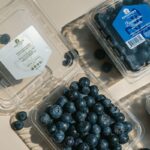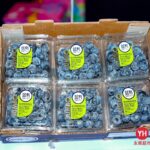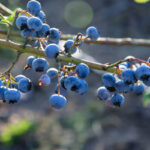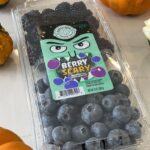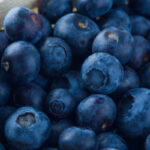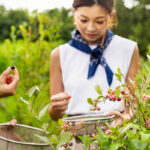Blueberry expert: 'Blue Madeira, Blue Manila and Blue Maldiva cope best with climate stress'

Press Release
As a blueberry cultivation expert, Prometeo Sanchez is committed to Planasa varieties. He also works on development of abiotic and biotic stress maps and investment in infrastructures to mitigate the effects of the El Niño climate phenomenon.
2023 was a huge challenge for blueberry producers in Peru. Difficulties that resulted in a considerable drop in exports. The poor yields were indeed not only due to climatic factors but also to agronomic management.
This is explained by Dr. Prometeo Sánchez García, professor at the Colegio de Postgraduados and specialist in plant nutrition, researcher, and advisor to agro-export companies in Peru and Mexico, among other countries, explains: "In 2023, the El Niño phenomenon, with high temperatures and rainfall generated favorable climatic conditions for the vegetative development of some blueberry varieties, which, together with the daily management of nitrogen (75% ammonium and 25% nitrates) after pruning, increased the problem of vegetative development, causing delays in flowering and even the absence of flowers."
In the current 2024 campaign, Sánchez indicates that the opposite seems to be happening: "This year, the El Niño phenomenon with high temperatures and no rain is generating strong stress in most of the varieties in Peru, causing dehydration and even death of the apical meristem", he explains.
Genetics, a key element in overcoming adversity
In this scenario, adaptability and a good choice of varieties are fundamental factors in facing the challenge. In this context, Dr. Sánchez is clear: "The genetic factor is essential. It is very important to opt for varieties with greater tolerance to water stress, because the interaction of unfavorable climatic factors such as high temperatures, low relative humidity, and high radiation translates into water stress for the plants."
Another key factor, according to him, is "stress mapping to design variety-specific climate stress management programs through bio-stimulation and investment in infrastructure".
Which varieties to choose?
In addition to the aforementioned tolerance to water stress, Prometeo Sánchez considers that "the varieties that have a greater stomatal density in the leaves tolerate climatic stress better".
Taking these factors into account, in his opinion, Planasa varieties are an excellent alternative: "In Peru and Mexico, in conditions of extreme climatic stress, of all the varieties on the market that I have had the opportunity to observe, the ones that have shown the best behavior have been Blue Madeira, Blue Manila, and Blue Maldiva".
These evergreen varieties have a zero chilling hours requirement, which allows them to adapt to tropical climates without chilling hours and gives them a unique ability to withstand unfavorable climatic conditions and even enhance their characteristics: "Growers are still looking for aspects such as yield per plant, berry size, flavor (Brix/acidity ratio), firmness and bloom. The latter is also what the end consumer fundamentally demands". And finally, he concludes that "the future lies in the development of varieties with higher yields, better fruit quality, tolerance to climatic stress and phytopathogens".
About Planasa
Planasa, a world leader in the agri-food sector, specialises in breeding the new generation of red fruit varieties. With a solid track record in various agricultural products, Planasa stands out for its commitment to genetic innovation and its commitment to sustainability in agriculture.
More information:
www.planasa.com
planasa@planasa.com
















